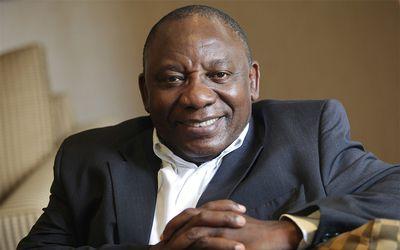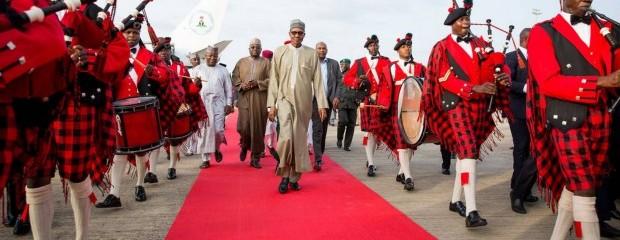South Africa: post-Mangaung the ANC talks the talk but can it walk the walk? – By Renee Horne

“In the Wise words of Nelson Mandela, there is no easy walk to freedom there will certainly be no easy walk socio-economic freedom”. Impressive words from President Jacob Zuma at the closing day of the Mangaung Conference in the Free State. Jacob Zuma has the top job in the African National Congress (ANC) and likely to serve a second term as South Africa’s president. President Zuma said this conference is a decisive moment for the party and transforming society. Indeed, there was decisive action regarding ANC comrades’ misbehaviour. Expelled ANC Youth League leader, Julius Malema hoped that delegates would review his expulsion, but this was not the case. There was a great deal of talk about the ruling party’s organisational renewal, yet divisions have been reaffirmed within the ANC.
Zuma also consolidated his grip on the ANC – the National Executive Committee (NEC) is dominated by his backers such as disgraced former Gauteng housing MEC Humphrey Mmemezi and former national police commissioner Bheki Cele. Those who were part of the Anti Zuma camp, such as multimillionaire, Tokyo Sexwale and Mathews Phosa were purged.
In a surprise move, super-rich Cyril Ramaphosa is now ANC deputy president. So, what happens to outgoing ANC deputy president, Kgalema Motlanthe? He will be redeployed to lead the ANC political education programme which focuses on organisational development. Whispers are that he is likely to step down as Deputy President of the country, but the ANC top brass vehemently rejected this statement.
That begs the question: will Zuma and Ramaphosa be the formidable pair that leads South Africa into the so called next phase of socio-economic transformation in the country?
One wonders how long Ramaphosa will be prepared to wait in the wings for the top job or is Zuma merely a figurehead with Ramaphosa charged to make the tough decisions? ANC secretary general, Gwede Mantashe, said that Zuma will still be in charge of the big picture, but Ramaphosa will be expected to act in much the same way as Mbeki did when he was deputy to former president Nelson Mandela after 1994. “One thing that is quite important is the deputy president is the head of government business. To me that is powerful enough. The president is not an MP but the head of government is the deputy president “” how he uses that power is up to the individual” said Mantashe in a recent business report.
Business optimism or pessimism
There is renewed optimism from business that Ramaphosa is now the second in command of the ANC. Economists have interpreted the former trade union leader’s appointment as favourable to investment and the economy. It appears that Ramaphosa is taking his position seriously. He’s called for a review of his business dealings. The multimillionaire owns Shanduka Holdings and is chairman of the Bidvest Group and MTN, as well as the owner of the South African franchise of McDonalds. Ramaphosa is also on the board of Lonmin, the mining company whose 34 workers were killed during an illegal protest over low pay and miserable living conditions. “This is necessary to address any potential conflicts of interest and to ensure that I can adequately perform the responsibilities of this position,” stated Ramaphosa. The tycoon is envied by the poor due to making millions from Black Economic Empowerment (BEE). Appeasing, both the poor and business will be a difficult hurdle to overcome for the ANC’s newest flavour of the month.
Optimism from business also stems from the fact that the ANC has squashed its alliance partners (COSATU and the SACP) calls’ to broaden the central bank’s mandate to include jobs and growth, but will stick to its current inflation-targeting regime. However, government will contemplate tax breaks for employers who hire young job-seekers to tackle the unemployment crisis in the country.
Nationalisation also appears to have been dealt with once and for all. ANC economic transformation policy commission head, Malusi Gigaba, said the conference had resolved that wholesale nationalisation was “off the table”. There would be “strategic nationalisation” in the form of a “resource rent” tax on mining firms, which is a windfall levy of 50 percent that will kick in after investors have seen returns. On the part of investors, there is pessimism and uncertainty as they would like to see how this policy will be implemented before they invest in the country.
Broad sweeping policies
The resolutions at Mangaung are deemed as a Christmas tree of gifts to appease both business and the masses, but it’s short on real specifics. The broad sweeping policies to resolve the myriad of socio-economic problems will be vested in the National Development Plan (NDP). “Our first main strategic task is the comprehensive implementation of the NDP by 2030. We will attain full employment for our people consequently reduce poverty and inequality,” said Zuma. While this might raise optimism among the masses, are these realistic objectives?
Zuma added, “Comrades, we have had very robust and constructive debates in the plenary and commissions. We have taken several other resolutions. Our priority is to draw up a clear plan of action to implement the policies. Early in the year the programme of action will be done and concluded. We have got to get working on implementing our policies.” Policies such as Broad-Based Black Economic Empowerment (BBBEE) which is currently being reviewed, will continue to be part of the ANC’s initiative to change the racial demographic of South African business which is predominantly white.
“Over the next 5 years the ANC will take decisive action to overcome poverty and unemployment at the heart of South Africa’s challenges. This will be through industrialisation, BBBEE, strengthening and expanding the role of the state embraced in the National Development Plan to build a prosperous society,” said Zuma. Broad sweeping statements came from Zuma and the conference resolutions, but will this affectively appease the masses that have persevered with lack of service delivery since the ANC took office in 1994. The masses have been optimistic about the ANC’s mantra, “˜A better life for all’. Only the 2014 elections will seal the fate of the ANC, already the predictions are that the party could experience the worse ever showing at the polls.
Dr Renee Horne is the Head of the BBBEE Unit at the Gordon Institute of Business Science (GIBS), South Africa






[…] Original article found at: https://africanarguments.org/2012/12/21/south-africa-post-mangaung-the-anc-talks-the-talk-but-can-it-… […]
[…] Original article found at: https://africanarguments.org/2012/12/21/south-africa-post-mangaung-the-anc-talks-the-talk-but-can-it-… […]
[…] Original article found at: https://africanarguments.org/2012/12/21/south-africa-post-mangaung-the-anc-talks-the-talk-but-can-it-… […]
[…] Original article found at: https://africanarguments.org/2012/12/21/south-africa-post-mangaung-the-anc-talks-the-talk-but-can-it-… […]